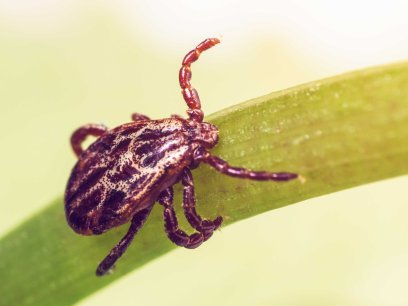
As news about the coronavirus (COVID-19) pandemic seems to change almost hourly, it’s vital to stay informed to keep you and your family safe and healthy. There’s a lot of misinformation out there, so make sure to seek out credible, trustworthy sources of news. Your first line of defense is this resource from the Centers for Disease Control and Prevention (CDC). With guidelines on how to protect you, your family, and your community, the CDC offers authoritative information that helps you separate fact from fiction.
Top recommendations include practicing good personal health and hygiene, which includes:
- Washing your hands thoroughly with soap and water for at least 20 seconds
- Covering your nose and mouth when coughing or sneezing
- Staying home if you feel sick, except to get medical care
Another important strategy to slow the spread of coronavirus is social distancing—staying at least six feet away from others and avoiding crowded areas. In such a connected world, social distancing may seem like a tough task, but it’s a vital approach to “flattening the curve” of this pandemic.
Depending on where you live, you may need to remain inside for an extended period of time. Here are a few ways you can stay healthy, get exercise, and help manage your stress during this crisis.
Find a new hobby
Before social media and smartphones, people relied on the basics for entertainment: books, magazines, music, board games, card games, backyard picnics, and good old-fashioned conversation. Nowadays, most people turn to the internet to learn new skills they’ve been curious about.
There’s never been a better time to pick up a new hobby, such as:
- Learn to play chess
- Start a journal
- Bake cookies
- Put together a jigsaw puzzle
- Create art
- Conduct a science experiment
- Write a novel
- Organize a closet
- Compose music
- Read to your kids
Keep moving
Many local gyms and fitness centers are offering free online classes, such as the YMCA and Planet Fitness. If you’ve been putting it off, now may be a good time to take up yoga! Yoga with Adriene offers a free library of videos for all ages. The CDC has an activity planner to help you structure your day. PWC is also offering a free fitness app to track your activities. Adults should shoot for at least 150 minutes of physical activity each week—remember, household chores count, too!
Get outside virtually
Take an “electronic field trip” with FSNatureLIVE’s distance learning adventures! Through a partnership with the USDA Forest Service, Prince William Network, and other sponsors, these videos were initially designed to help classrooms access remote locations and speak directly with experts as if they were really there. No matter where you are in the world, you can learn about bats, butterflies, climate change, wetlands, and more.
Had to cancel a trip to your favorite park? Take a virtual visit instead! Many major national parks like Yosemite offer online interactive tours, and aquariums like Monterey Bay have several live webcams full of beautiful, soothing sea life.
Google Earth also offers stunning visits to 31 US National Park sites.
Take in an online museum
Many museums and research centers offer virtual tours, including the National Museum of Natural History, NASA’s Langley Research Center, and the Museum of Flight. For more recommendations of virtual museums resources, e-learning, and online collections worldwide, visit MCN.
Keep the kids busy with science
Even if you have to stick close to home, there are many learning activities and citizen science projects available for children of all ages.
- Snapshot Safari looks to citizen scientists from around the world to identify wildlife caught on camera. With millions of images ready to be classified, participants have the opportunity to search for wildlife in remarkable ecosystems featuring a variety of habitats, such as the unique Karoo and Fynbos vegetation of South Africa, the great wildebeest migration of Tanzania, and the recovering wildlife populations of Mozambique.
- ISeeChange is a global community that posts about what they notice changing in the environment. Each post is synced with weather and climate data and broadcast to the community to investigate bigger picture climate trends. Over time, community members can track how climate is changing season by season and understand its impacts on daily life.
- SciStarter has over 3,000 projects and events searchable by location, scientific topic, and age level. SciStarter also supports researchers in managing projects, including best practices for engaging participant partners. This link is filtered to show online projects for kids 6-13 years old.
- Learn about energy in your home: NEEF offers some creative ways to help kids understand the concept of energy, including a fun home energy audit from NEEF and the National Hockey League.
Spending more time at home—and with your loved ones—can truly be a positive and educational experience with the right mindset. For more resources, visit our Environmental Education at Home resources.


